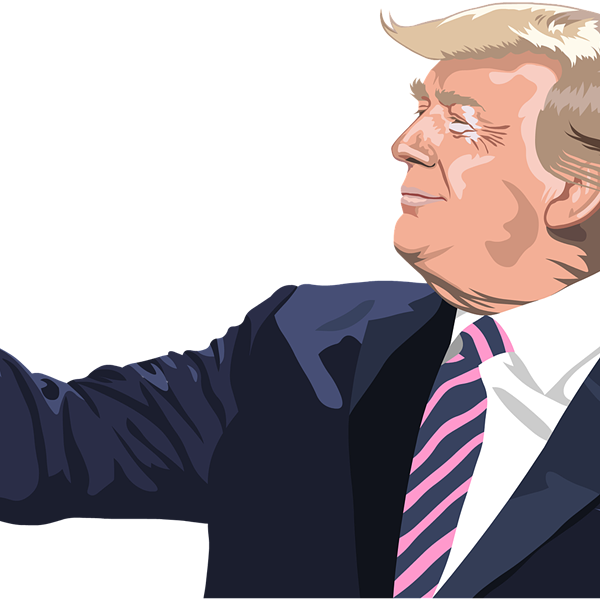The fault, dear friends, is not in our Obama, but in ourselves.
An imaginary Obama, leading an imaginary Democratic Party, in an imaginary world, by now—hell, with the first 100 days—would have:
1. Gotten us out of the Iraq and Afghanistan;
2. Ended the recession;
3. Passed single-payer national healthcare;
4. Balanced the budget by taxing the rich;
5. Reformed the financial system;
6. Fixed the intelligence services;
7. Legalized marijuana and gay marriage;
8. Put us on a diet and exercise program to end obesity.
He has not accomplished those things because the political will to do so does not exist. Not in Congress, not in the media, and not among the people.
People do not go to the facts and reason things out for themselves. They accept what they hear around them. Their thinking follows standard, conventional frames of reference.
This is even more true of congressional representatives, senators, and reporters. The process for success in those fields selects for conventional ideas, the demands of their professions leave little room for thinking, and, for the most part, they are employees of major corporations.
Thinking is the job of other people. Academics, intellectuals, writers, and artists, members of various movements. It is also up to them, however difficult it is, to make their thoughts known and make their ideas influential.
They have failed. The problem is so severe that the left’s only public intellectual who can speak up for facts and reason, and actually have an effect, is Michael Moore.
Who’s Soft on National Security?
The invasion of Afghanistan, the failure to “get” Bin Laden and Mullah Omar, the occupation of Afghanistan, the graveyard of empires, and the invasion and occupation of Iraq, are among the greatest foreign policy and military errors in American history.
Just flat out leaving—and in a hurry—might be the best thing to do.
But we can’t do it unless we answer certain questions first.
Are those countries worse off than before we invaded? Are we responsible for making them whole? If we leave will they devolve into chaos? Civil war? Will it empower the Taliban? Destabilize Pakistan? Empower Iran? Lead to more terrorist incidents? And, if so, is that worse than two ongoing wars?
There is also a political problem for Obama.
Eisenhower ended Korea in a stalemate, Nixon withdrew from Vietnam, Reagan pulled out of Lebanon, Bush had 9/11 happen on his watch, then came up with a lunatic set of responses. Yet “strong on national security” remains the Republican brand. “Soft on national security” is a weight hanging around Democrats’ neck.
How can Democrats end those wars without paying a political price for the next half century?
Consume to Succeed?
America’s greatest economic problem is that we are no longer a production economy. We are a credit economy.
Yet we still, universally, speak about consuming our way out of the recession. A person can’t consume their way out of bankruptcy. Neither can a country. You have to produce your way out.
How do we do that? Against globalization and free trade?
The answer is fairly simple. We have to produce things that can’t be outsourced or undercut by semi-slave labor in third world countries.
A third of the deficit in our balance of trade is imported oil. The first answer, therefore, is solar, wind, and geothermal energy—with the infrastructure to deliver and use them efficiently. These are, in essence, giant construction projects. That spending, of necessity, remains here. Once in place, payments for the use of the energy also stay home instead flowing out through the golden pipeline to Saudi Arabia.
The second answer is infrastructure. Bridges, broadband, education, transparency and the enforcement of business rules, and healthcare, are all invisible subsidies that make it cheaper, easier, safer, more efficient, and more pleasant to do business. This is so obvious it hurts.
So why haven’t you heard the pundits crying for these solutions on MSNBC, NPR, in the Wall Street Journal and the New York Times, even on Bill Maher and Bill Moyers?
Instead, all we hear, is don’t raise taxes.
The simplest, most powerful, one stroke solution to solving our economic problems is raising taxes on the rich. It is a historical truth that a tax hike (so long as it is not combined with a cut in government spending), marks the end of a depression or a recession. It is a historical truth that higher top marginal tax rates correlate with healthier economic growth.
Low tax rates for the highest income groups, and especially low rates for unearned income, lead to bubbles, crashes, bank failures, and bailouts. Yet tax hikes is the true third rail of American politics. A politician who touches it dies.
Change the Dialog
The intelligence services assassinate people, spy on Americans without warrants, attempt to destabilize regimes, and outsource their activities to companies like Blackwater.
But that’s not the real problem.
The real problem is that secret intelligence always, and of necessity, leads to lying. It is the perfect hiding place for incompetence. It is a free pass for cover-ups.
Secret intelligence is never as good as public intelligence. Public intelligence is subject to analysis, testing, and review. The real history of our secret history shouts out one lesson—we would have been better off without secrecy.
Yet all conversations about intelligence start with absolute presumption that we need secret intelligence services.
It’s up to us to change those dialogs.
Until we do, remember, when you smoke that reefer you’re breaking the law, when gay marriage is legal, gay divorce attorneys will get rich, and the epidemic of obesity is caused by suburbs, cars, bad food, and too much time in front of screens, so good luck to all of them and to us.

















